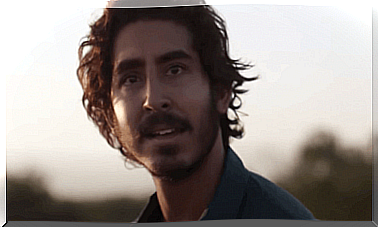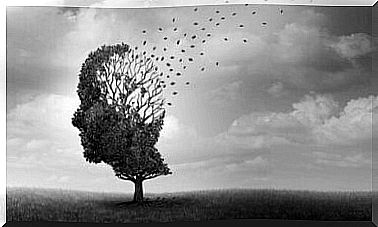5 Insights From The Dalai Lama For Reflection

“Remember that something you don’t get can sometimes be a wonderful stroke of fate.”
Dalai Lama
Society teaches us that happiness is not only difficult to attain, but that if we manage to feel it, it is too short-lived. We have been taught an understanding of life and happiness that makes us indifferent. We wait for happiness to find us at some point because we believe that we cannot be happy easily anyway.
One of the most complicated aspects of learning to be happy is that we are not taught how to recognize and appreciate happiness. Here we go into an endless loop in which we are repeatedly frustrated without affecting our inner and existential diversity at all.
Thanks to positive psychology and the ancient philosophies of Buddhism, we can perceive the indispensable feeling of bliss as something tangible and possible in our life.
In order to develop and expand personally, we take an example today from one of the philosophies that comes closest to the feeling of diversity and inner peace and present you 5 insights of the Dalai Lama.
–
You will agree with us that the primary goal of man is to expand his material wealth rather than expand his spiritual possessions. It seems that the former is indispensable and urgent, the latter, on the other hand, is done with idleness, but in most cases it is rather postponed until tomorrow.
When we limit our lives to feeling and understanding the world in this way, it is easy just to strive to accumulate our riches. We are looking for material security, but it can never become real, because we can always imagine some other hypothetical situation in which we need even more money.
However, this realization of the Dalai Lama can help to open our minds and give us the opportunity to understand our existence and our goals in a way that we could not before because we were taught differently.
–
One of the hardest rules in life is also the cornerstone of enjoying ourselves and others: exercising compassion. To be a compassionate person means doing everything possible to alleviate the suffering of others and therefore your own.
Compassion comes from understanding, acceptance, and change. Thanks to this reflection from the Dalai Lama, it is easier for us to understand that compassionate behavior, both towards ourselves and towards those around us, could lead to happiness.
–
Often times we surround ourselves with people who have a tendency to sink into self-pity: they seem to have had a life full of failures, continually complain, and seem to have no options in life.
They fail to notice that they keep clinging to their past and use it as an excuse to get in their own way and not move forward in the present and future. Of course, each person has different life experiences, but if we chain ourselves to the past and waste our days thinking about what we have done or what we could have achieved, then we cannot consciously experience that here and now.
The present is essential to continue improving in all respects, to grow and to be able to achieve bliss.
–
If we are able to dominate our minds, we can also be able to be happy. Why? All of our thoughts and fears that prevent us from doing things that bring us closer to bliss are rooted in our minds. If we manage to keep our mind harmonious and serene, we could reverse our energies and find the best way to resolve internal conflicts and overcome them in a healthy and balanced way without any problems.
When we live with an uncontrollable mind, we create problems and hurdles that don’t even exist and that make it difficult for us to find happiness.
–
Renunciation is one of the most important main principles of Buddhism. Often our suffering is based on the affection for material things, certain situations or people.
A bond then emerges within us that we believe will make us suffer and feel bad when we lose it. For Buddhism waiver means no need for an emotional connection to feel, in the happiness does not depend on the kindness of others, but by our possessions.
Letting things take their course to start with is one of the best practice tools if you find it difficult to just let go at a certain moment.









